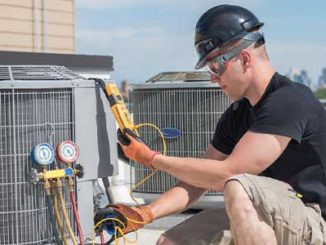
By / Kathleen Collins, Government Relations Consultant
The Legislature ended its 60-day session on time with a big bump in state spending, no new taxes, and a 16-year transportation funding package. Despite the fiscal impact of the pandemic in general, Washington state had a lot of additional revenue to spend this year. Republicans argued for tax reductions. Democrats gave small business a break on business and occupation tax but did not agree to broad tax reductions or even smaller proposals for tax relief, like a sales tax holiday for school supplies, free state park passes, or removal of sales tax on diapers.
The majority party used the additional funds for a multitude of general fund expenses, growing the state operating budget in a supplemental year by 24% to reach $64.9 billion. The two-year budget adopted last year was $59 billion. In a rare move, the budget leaders also agreed to transfer $2 billion to prop up the transportation budget, which saw a big decrease in transportation revenue from gas tax and other sources during the pandemic.
Transportation package with no gas tax
Contrary to expectations, the majority party succeeded in adopting a 16-year $17 billion dollar transportation package—without a gas tax increase. The money will come from the state’s carbon reduction auction system passed last year, increased transportation related fees, and two existing funds used for infrastructure and pollution. The carbon money will be dedicated to transit, ferries, and other non-road programs. The rest of the funding will support road projects, most of them in the Puget Sound region.
Climate change and conservation—what passed and what didn’t
Governor Inslee’s package on climate change had an emphasis on reducing greenhouse gas emissions and, specifically, the use of natural gas. SB 5722 is the only bill from his package that made it across the finish line. SB 5722 will lower the existing threshold for the current clean buildings law for commercial and multi-family buildings from 50,000 square feet to 20,000 square feet. The clean buildings law requires building owners to do energy benchmarking and related conservation retrofits—work SMACNA contractors perform.
Three other bills in the Governor’s climate package did not pass. They included: requiring gas utilities to scale down the use and deployment of natural gas for residential and commercial; allowing publicly owned electric utilities to use rate payer money to offer incentives to customers to switch from gas to electric; and directing the state Building Code Council to adopt a net-zero ready code for new buildings by 2031 and authorizing reach energy codes for cities and counties.
The Legislature adopted HB 1280, a bill that establishes a state policy to have public buildings analyze the cost to construct all-electric facilities and requires the Department of Enterprise Services to develop lifecycle analysis guidelines for all-electric systems. On the conservation front, the Legislature also passed HB 1768, a bill that expands the use of performance-based contracting for public facilities to include conservation from distributed energy resources, such as energy storage, demand response, EV charging, and grid-interactive efficient buildings. HB 1619 adopts new energy efficiency standards for several appliances, including residential ventilating fans and air purifiers. For SMACNA contractors who do solar, HB 1814 will provide an opportunity to partner with a utility or non-profit to do community solar projects for low-income properties. The Legislature is dedicating $100 million for community solar projects over the next ten years.
Contracting and contractor issues
Two tax break bills passed with labor standards tied to them. HB 1846 requires the use of project labor agreements or community workforce agreements to qualify for tax breaks for data center projects planned for the Puget Sound area. Similarly, HB 1988 provides a tax deferral for building clean technology manufacturing facilities with repayment amounts tied to how many labor provisions are used in the contract. These include contracts with women, minority, and veteran-owned businesses, use of apprentices, and execution of a project labor agreement or community workforce agreement. Use of all the labor standards forgives the entire tax deferred amount.
SMACNA worked with Local 66 in 2020 to pass a law improving inspections and specifying worker training requirements for fire life safety systems in commercial buildings. SMACNA had concerns with HB 1971, which was introduced this session and would have relaxed the training criteria for contractors who work on smoke control and fire control systems and weakened the inspection requirements. HB 1971 did not pass out of the House. We expect there may be continued discussions on the issue over the interim.
Employment and other bills of interest
In the first few days of session, the Legislature responded to concerns about the controversial long-term care insurance law and passed a bill to defer implementation of the program until July 1, 2023, with the goal of amending it during the 2023 session. Paid family leave was also in the spotlight. After the Legislature learned that the program was going to become insolvent before the end of the year, they added an actuarial and legislative review of the PFL program to SB 5649, a bill that makes minor changes to the program. The Legislature transferred $350 million from the general fund money to shore up the program in the short term. SB 5873 reduced the unemployment social tax that would have been triggered due to higher pandemic related use. Last, the Legislature passed HB 1815, a bill increasing penalties on the theft of catalytic converters.
If you want to look at bills referenced here, go to leg.wa.gov and select bill information. Type in the bill number and you will find both the bill and bill report, or you can ask for additional information from SMACNA. ▪



